Law Commission of Canada Emerging Scholars Program
The Law Commission of Canada Emerging Scholars Program recognizes doctoral candidates as emerging scholars in law and law reform. The Program provides support over a four-month period (the duration of an academic semester) to doctoral candidates in law, law and society, or other related disciplines at a Canadian university.
As they continue work on their doctoral thesis, LCC Emerging Scholars will have an opportunity to make an innovative and meaningful contribution to the LCC. That contribution will take the form of community engagement in keeping with the LCC’s mission and orientations. Examples include educational workshops, podcast episodes, community group roundtables, etc.
LCC Emerging Scholars receive $10,000 CAD. The LCC aims to support two scholars per term.
Additional information
- Days / hours: Scholars would contribute the equivalent of one business day per week to the LCC.
- Location of work: Remote (virtual).
- Copyright: The LCC retains copyright on all work created as part of the scholar’s contribution to the LCC.
- Upcoming application deadlines: August 11, 2025 for the Fall 2025 term (September-December).
- Contact information: Questions regarding the LCC Emerging Scholars Program can be directed to projects-projets@lcc-cdc.gc.ca.
Call for Applications - LCC Emerging Scholars Program (Fall 2025)
List of Emerging Scholars
José Saldaña Cuba (Fall 2025)José is a human rights lawyer and doctoral candidate in Law (DCL) at McGill University. His research, supervised by Professor Sébastien Jodoin, examines Indigenous legal resistance to extractive industries in Peru’s Southern Mining Corridor, with an emphasis on global legal pluralism and environmental justice. He previously worked at the Inter-American Court of Human Rights and served as a legal adviser to the Peruvian Congress and the Presidency of the Council of Ministers. He has also taught constitutional law and legal anthropology at leading Peruvian universities. |
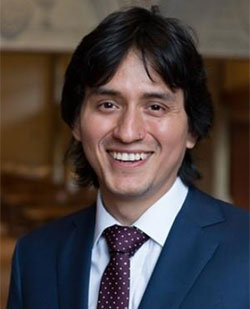
|
Sébastien Meeùs (Fall 2025)Sébastien is a doctoral candidate in law at the Université de Montréal, in a joint PhD program with the Université libre de Bruxelles, where he also serves as a teaching assistant for the Data Law course. His research focuses on normative practices in digital environments, particularly on how corporate compliance efforts impact the effective exercise of individual rights. He is especially interested in the legal implications of Web3, video games, and virtual spaces (including the metaverse), from a global law perspective. His dissertation analyzes regulatory mechanisms through technological compliance and the legal reverse-engineering of technical processes, using various case studies such as smart glasses and the protection of user and public data. Sébastien’s presentation to the Law Commission (October 2025) |
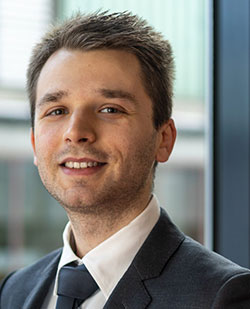
|
Andrea Menard (Fall 2025)Andrea is a Métis legal scholar, public intellectual, and federal adjudicator. She is a Doctor of Social Sciences (DSocSci) candidate at Royal Roads University in the College of Interdisciplinary Studies, supervised by Dr. Siomonn Pulla. Her doctoral research reimagines professional legitimacy in Canadian law by centering Indigenous jurisdiction and the standard of Free, Prior, and Informed Consent (FPIC). She examines how self‑regulating legal bodies, particularly the Federation of Law Societies of Canada, risk undermining reconciliation when they legislate “Indigenous competence” requirements without Indigenous consent. Bridging legal pluralism, decolonization theory, and social‑dominance analysis, Andrea translates scholarship into practical policy tools that align legal regulation with the United Nations Declaration on the Rights of Indigenous Peoples and the Truth and Reconciliation Commission of Canada’s Call to Action 27. |
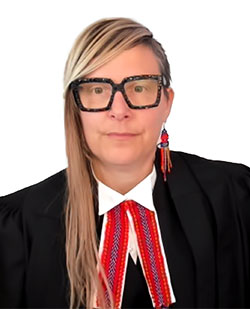
|
Natasha Jaczek (Summer 2025)Natasha is a PhD candidate at the University of Ottawa focused on pluralist legal empowerment, critical pedagogy, and community-based justice education that raises young people's critical legal consciousness. Her work explores what youth know about the law and their confidence in navigating legal issues. Committed to community engagement, her most recent work includes youth-led, culturally responsive initiatives for urban Indigenous youth transitioning out of care. Natasha has presented her research at academic conferences in Canada and internationally, earning recognition from global justice education organizations for addressing key knowledge gaps. Through both research and practice, she works to ensure that young people’s perspectives are not only recognized but actively shape conversations about law and justice across Ontario and beyond. |
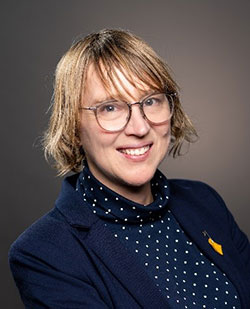
|
Alexandra Bouchard (Winter 2025)Alexandra is a doctoral candidate at the Université de Sherbrooke, Faculty of Law, under the supervision of Professor Stéphane Bernatchez. As part of her doctoral research project, Alexandra is interested in the regulation and governance of new technologies and their use by public administration, particularly in contexts of social welfare. A lawyer, Alexandra holds a bachelor's degree in law from the Université du Québec à Montréal and a master's degree in law from the Université de Sherbrooke. Alexandra’s presentation to the Law Commission (January 2025) |
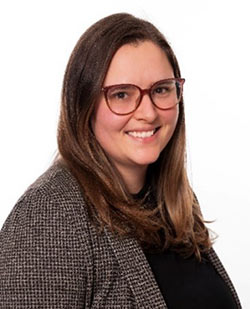
|
Michael Law-Smith (Winter 2025)Michael is a JD/PhD (Philosophy) Candidate at the University of Toronto. His doctoral research, supervised by Professor Arthur Ripstein, focuses on the limits to the state’s authority in the criminal justice system. This project covers various theoretical and doctrinal issues in criminal law and tort law, including the injustice of mass incarceration, the normative purpose of criminal trials, and the state’s liability for prosecutorial misconduct. Previously, he clerked for Chief Justice Richard Wagner at the Supreme Court of Canada. |
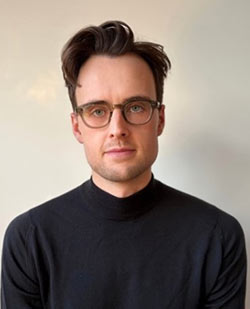
|
Esteban Vallejo Toledo (Winter 2025)Esteban is PhD candidate at the University of Victoria, Faculty of Law. He explores the relationships between taxation, urban development, and spatial inequality in Vancouver from a legal-geography perspective. Esteban works under the supervision of Professors Bradley Bryan and Tamara Krawchenko, receiving support from Professors Kathryn Chan and Reuben Rose-Redwood, and from UVic Librarians Emily Nickerson, Jessie Lampreau, Sarah Miller, David Boudinot, Daniel Brendle-Moczuk, Tina Bebbington, Pia Russell, Shahira Khair, Nick Rochlin, and Monique Grenier. Esteban is grateful to SSHRC, the Law Foundation of British Columbia, the Law Commission of Canada, and the University of Victoria for their funding. |
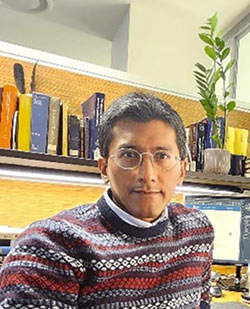
|